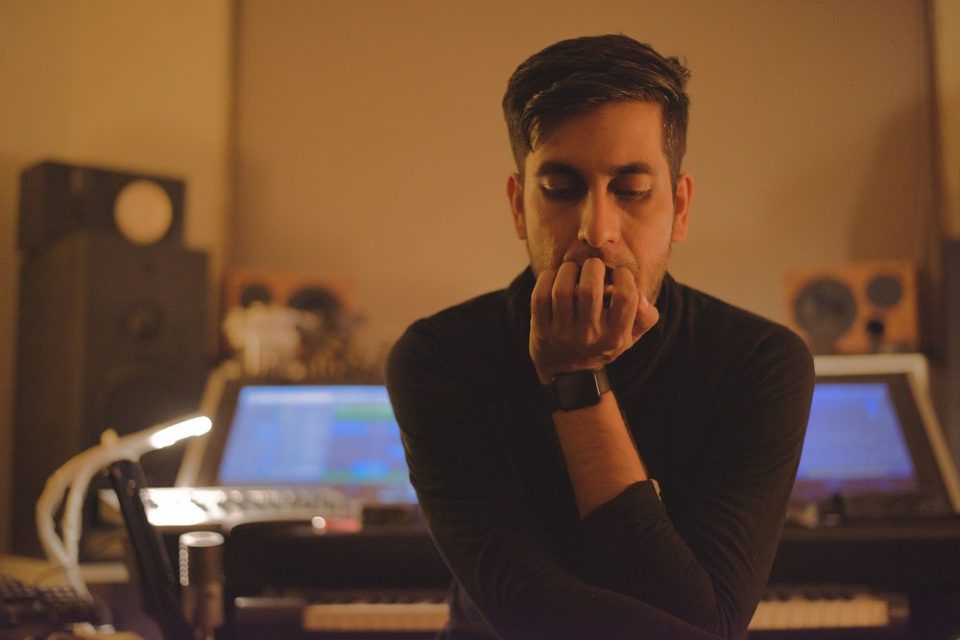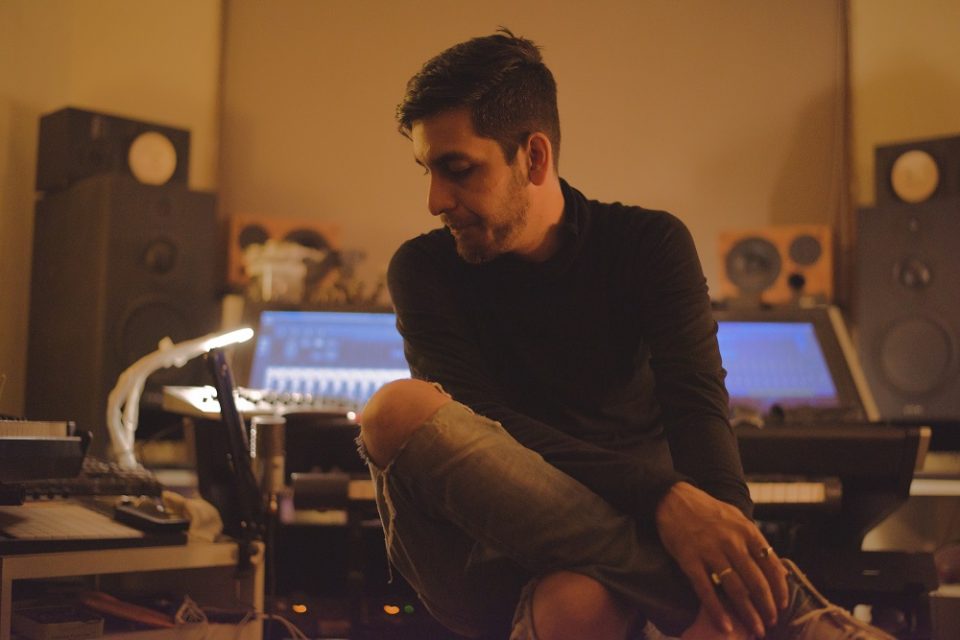Music Producer Ayan De: ‘No One Can Teach You How to Listen’
The Mumbai-based recording engineer opens up about his formative years after almost a decade in music production, his favorite sessions and more
When we arrive at Mumbai-based producer/sound engineer Ayan De’s studio at his residence to interview him, there’s no need for a recording device. De just tracked our entire conversation straight through his console. It’s the setup that he’s used for recording tons of indie bands, singer-songwriters, work on his material, teach young producers, write for T.V. and more for nearly 10 years.
Due to his father’s traveling job with Bharat Petroleum, De lived in Chennai, Coimbatore and Mumbai growing up. It wasn’t until he came across a friend’s toy piano was when he realized that he could string melodies of popular tunes together. “It’s like I knew how many semitones to skip and it didn’t make sense because I didn’t have any formal training or exposure or person at home who played an instrument.” After scoring high in a school Hindi exam, De’s mother gave him an actual keyboard and that’s when the wheels were set in motion for him. He says, “That was the only instrument that I had for the longest time. I picked up guitar somewhere in between.”
During his late teenage years, De began attending Chennai’s Unwind Center School of Music where he interacted with more musicians, volunteering at the center and playing gigs there on Fridays. “That’s sort of how I got into this,” he says. De also mentions at that point he knew he didn’t want to be a musician when he grew up but wanted to be associated with the field in some capacity. After a short stint in Hotel Management in Manipal, De moved to Mumbai.
At 20, he enrolled at SAE Institute in Andheri for sound engineering. “I was horrible, I went in as a blank slate,” he says. De found himself staying up every night working on his chops, something he admits he still does to date. He explains, “I remember at some point of time, I was like, it’s not just about understanding and using a software. It’s about how you perceive sound and understanding that.”
Soon after De began to look for work “so you can fuck up and you can learn from your fuckups and they can learn that you’ve fucked up because you don’t know your shit.” One of the earliest records he worked on was for his friend’s brother. He tells us that it was a Christian rock singer-songwriter pop-sounding project. “I picked up this Line 6 sound card because I needed something for guitar tones,” he says. Although De states that it took him a long time to complete that record and that he had to work with stock plug-ins, it was worth it for developing his skills.

“You can fuck up and you can learn from your fuckups,” says De. Photo: Parizad D
It was at this point when De briefly had stints in Mumbai metal outfit Descarta and alt metallers Goddess Gagged as a keyboardist while also producing for both bands. “For a long time, it was just these few bands and acts,” he says. In 2012, the producer also started moonlighting under the moniker Paralights and released a five-track electronica record titled Scores For Your Background. De says, “The scene started changing drastically in 2011. I started going for electronica gigs and I started discovering basically that I wanted to learn how to mix a certain type of genre of electronica that was becoming a thing around that point of time.” He adds, “I was working with Your Chin on his first EP, I used to hang out with other producers like Sandunes and Zokhuma. So I made a record for mixing and that’s how the Paralights thing happened.”
Through the years, De has gone on to become one of the go-to producers/engineers for independent artists in India which include vocalist-guitarist Siddharth Basrur, punk rockers The Lightyears Explode, alt-rockers BLEK and Unohu, singer-songwriter Saachi and more. De tells us that often, he’s been the one overthinking about public consumption of a song based on emotions and lyrics, which has led to shaping the music well. He cites a few examples saying, “’The Weapon’ by Lightyears that happened a few years ago, I think that was done in a few hours. We tracked it and we got done. The BLEK song ‘Fog + Strobe’ similar case there. For Saachi, she wanted to do like a 24-hour long song.”
Apart from doing indie work, De has also dabbled in commercial stuff for ads and T.V. for shows such as The Voice as well as international work as a ghost producer and mixing engineer. The sound engineer also had the opportunity to work front of house for playback singer Arijit Singh’s U.K. tour which included a set at London’s Wembley Stadium in 2016. “What drives me isn’t so much the financial gain that comes out of it, but the work itself,” he says. Currently, De is also working on a few Netflix shows in the capacity of a sound designer, Dolby Atmos projects, music education and focusing on mastering tracks more. He says, “I just got done working on some of [multi-instrumentalist] Joshua Singh’s music, which I personally thought was incredible because it was one of those records that just had perfect performance.”
Ask De what’s the most satisfying part of his job and he says, “When you’ve worked on something years and years and years ago, and you go out somewhere and you’re having dinner, or you’re chilling with a friend and either something that you’ve worked on comes up in conversation where they don’t know you have had anything to do with it, it’s amazing. Because then you know that project did well for that artist.” De’s message to young songwriters, producers, mixing and mastering engineers is simple, he says, “Don’t complicate things.”








